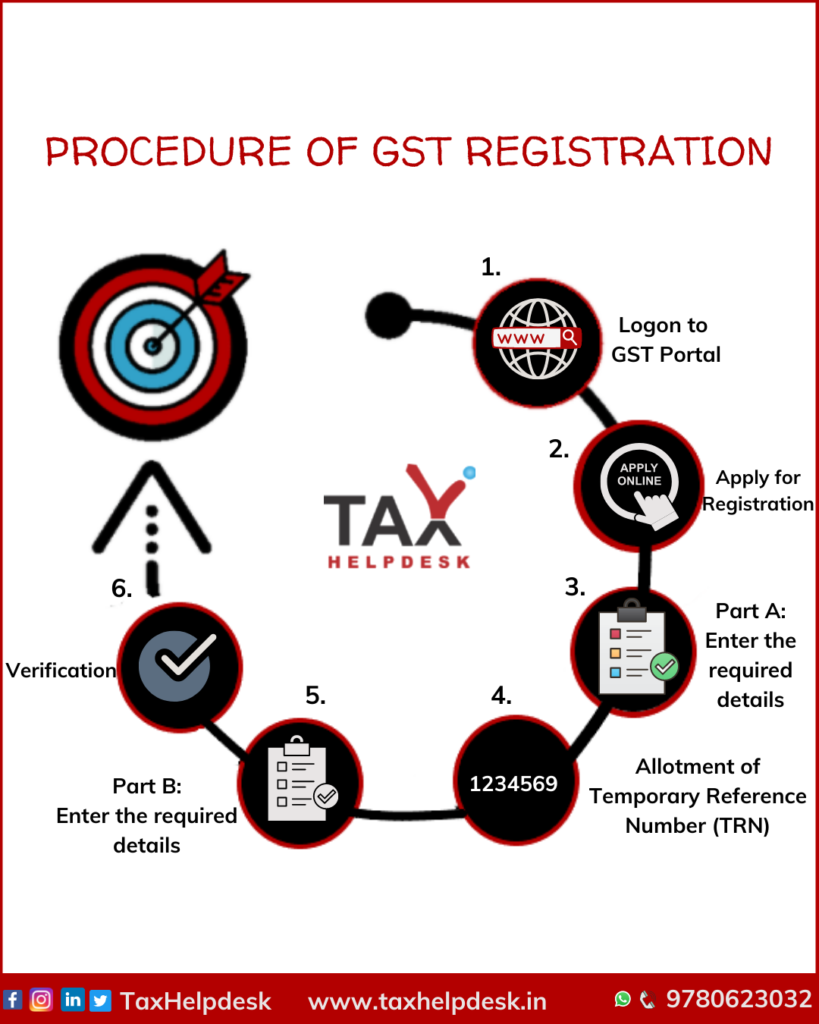Recognizing the Conveniences of the most effective GST Registration Services in Singapore
Recognizing the Conveniences of the most effective GST Registration Services in Singapore
Blog Article
From Beginning To End: The Ultimate Roadmap to GST Enrollment for Companies Seeking Financial Stability
Browsing the intricacies of Product and Solutions Tax Obligation (GST) registration is a critical step for organizations pursuing economic security. From understanding the essential concepts of GST to abiding with post-registration guidelines, the process can seem intimidating initially glance. Breaking down the roadmap into workable steps can enhance the enrollment trip for businesses looking to enhance their monetary standing. Allow's discover the vital parts that make up this utmost roadmap and uncover how each stage adds to laying a strong foundation for financial success.
Understanding GST Fundamentals
Diving into the essential concepts of Item and Solutions Tax Obligation (GST) is vital for obtaining an extensive understanding of its ramifications on organizations and the economy. Input Tax Credit History (ITC) is a substantial attribute of GST, allowing companies to declare credit rating for taxes paid on inputs, lowering the total tax concern. Comprehending the fundamentals of GST is critical for businesses to conform with tax obligation laws, handle their funds efficiently, and contribute to the country's financial development by taking part in a transparent tax obligation system.
Qualification Requirements for Enrollment
To sign up for GST, services should satisfy certain eligibility requirements developed by the government. The primary eligibility need is that any type of company involved in the supply of goods or services with an annual accumulation turnover over the threshold limitation established by the authorities should register for GST. As of the present policies, the threshold limit for GST enrollment is a yearly aggregate turn over of 40 lakhs for businesses running within a state, besides special category states where the restriction is 20 lakhs. Furthermore, certain businesses are called for to register for GST irrespective of their turn over, such as interstate distributors, informal taxable persons, and organizations reliant pay tax under the reverse cost system. It is vital for companies to thoroughly assess their turn over and deal types to establish their GST enrollment commitments precisely. Failing to register for GST when eligible can bring about charges and lawful repercussions, making it important for organizations to abide by the defined eligibility requirements.
Files Required for Enrollment
Having actually met the qualification standards for GST registration, companies need to currently ensure they have the requisite files in position to wage the registration process effectively. The records needed for GST registration normally consist of evidence of business constitution, such as partnership deed, registration certificate, or consolidation certificate for different sorts of services. Furthermore, services require to supply records developing the major business, such as a rental contract or electrical energy expense. Frying pan card of this link the organization, in addition to the identity and address evidence of promoters/partners/directors, are essential for confirmation objectives. Bank account statements, together with canceled cheques or a copy of the bank passbook, are required to verify the financial details offered during enrollment. Services must have electronic signatures prepared for the authorized notary. Making sure all these documents are organized and readily offered will certainly expedite the GST enrollment process, enabling companies to abide by tax policies seamlessly.
Step-by-Step Enrollment Process
Starting the GST enrollment procedure entails a series of structured steps to guarantee a seamless and certified enrollment for services. The very first step is to visit the GST site and submit the enrollment form with accurate information of the organization entity. Following this, the candidate receives a Temporary Recommendation Number (TRN) which is used to resume the application procedure if it's not completed in one go.
Following, all required documents according to the list offered by the GST portal demand to be posted. These papers normally include evidence of business address, registration and identity proofs of promoters, financial declarations, and organization entity's PAN card.

Post-Registration Compliance Guidelines

Verdict
In verdict, organizations seeking monetary security needs to comprehend the essentials of GST, fulfill eligibility criteria, collect essential papers, comply with the detailed registration procedure, and adhere to post-registration standards - Best GST registration services in Singapore. By sticking to these steps, companies can ensure compliance with tax obligation regulations and keep economic security in the future
Additionally, certain organizations are required to register for GST irrespective of their turnover, such as interstate suppliers, casual taxed individuals, and businesses accountable to pay tax under the reverse charge mechanism.Having actually fulfilled the qualification criteria for GST enrollment, companies must now ensure they have the requisite files in location to proceed with the registration procedure successfully. The files needed for GST enrollment normally consist of evidence of service constitution, such as partnership act, enrollment certificate, or consolidation certificate for various types of companies. Furthermore, companies require to supply documents developing the primary location of service, such as a rental agreement or electrical energy expense.Beginning the GST registration procedure involves a collection of organized steps to guarantee a seamless and certified registration for organizations.
Report this page